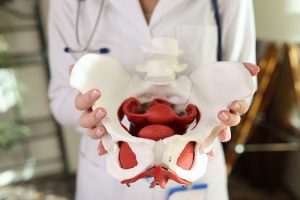Blog
Premenstrual syndrome (PMS) and premenstrual dysphoric disorder (PMDD) are two of the most prevalent conditions women face, and their symptoms can be wholly disruptive to everyday life. While PMS is more common and less severe, both conditions can bring about uncomfortable symptoms. PMS is characterized by mild to moderate physical symptoms like bloating, cramps and…
Menopause marks a natural transition in a woman’s life, bringing with it a cascade of hormonal changes that can alter sexual health. As estrogen levels drop, many women notice a shift in their bodies; vaginal dryness becomes more common, libido might wane and intimacy can sometimes feel uncomfortable. Navigating this stage of life can seem…
The pelvic floor plays a vital role in a woman’s physical health. This complex muscular system is made up of several muscles that support the bladder, uterus and bowel, similar to a hammock to hold these organs in place. Due to its positioning and support for other systems, a healthy pelvic floor is essential for…
The recent advancements in minimally invasive procedures in urogynecology, like TULIP®, are a sure sign of a much-needed shift toward patient-centered care. In the context of urogynecology, patient-centered care involves customizing treatment plans to address each woman’s unique symptoms, lifestyle considerations and personal goals while prioritizing her comfort, recovery and long-term health outcomes. Innovative procedures…




